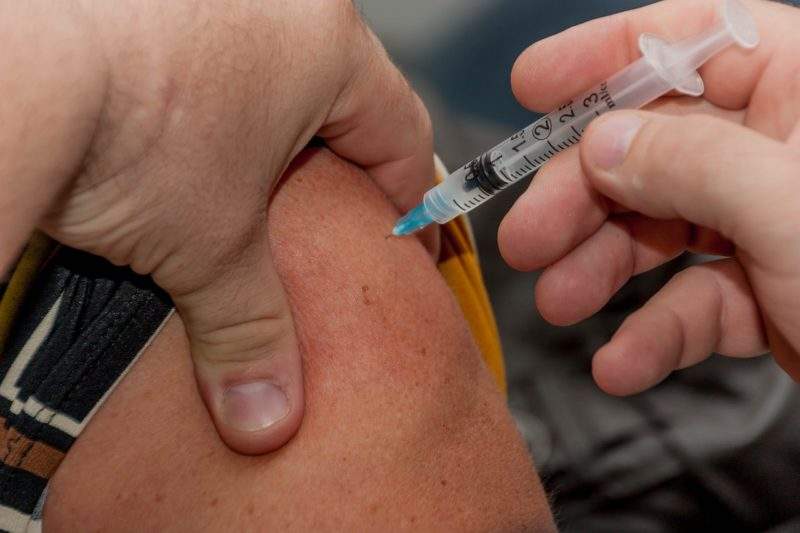As this year’s influenza (flu) season kicks off in the Northern hemisphere, a new study published in JAMA provides further evidence that immunizing children each year remains the best way to protect them from this serious and potentially life-threatening infection—helping to discredit an increasingly widespread belief that vaccinating in consecutive years may negatively affect vaccine efficacy.
In this longitudinal, test-negative case-control study, 3,369 children 2-17 years of age were recruited from four outpatient clinics during the 2013-2014, 2014-2015, and 2015-2016 flu seasons. Study participants received either the live-attenuated influenza vaccine (LAIV, FluMist) or inactivated influenza vaccine (IIV, numerous brands) and were divided into four groups based on their vaccination history: (1) vaccinated on enrollment and prior season; (2) vaccinated on enrollment only; (3) vaccinated on prior season only; (4) not vaccinated.
While results varied by influenza type and subtype, vaccine type received in the enrollment season, and vaccine type received in prior seasons, overall the data show no statistically significant decrease in vaccine effectiveness in those who were immunized the prior season. Interestingly, researchers observed a statistically significant increase in LAIV effectiveness against influenza A(H3N2) amongst those who had been vaccinated the prior season, though this result merits further study before any conclusions can be drawn.
While the paper’s authors readily acknowledge the study’s limitations—most notably its small sample size across the different groups, and the fact that the influenza B strain used in the vaccine changed during the 2015-2016 season—the evidence collected from this and other studies strongly suggest that the benefits of receiving the seasonal flu vaccine each year highly outweigh any potential risks associated with immunization. Nonetheless, given that the Centers for Disease Control and Prevention (CDC) already recommends that everyone ≥6 months of age be vaccinated against the flu each year, GlobalData does not expect these results to effect any drastic change in US immunization policy.
Despite the preponderance of evidence in support of flu vaccines and the fact that most private and public health insurances provide them free of charge, scepticism surrounding the seasonal flu vaccine persists, with only 41.7% of the US population receiving the vaccine during the 2017-2018 season, according to the CDC—the lowest overall coverage rate since the 2011-2012 season and a notable decrease from 2016-2017 (46.8%). Vaccination rates remained higher for children (57.9%) compared with adults (37.1%) in 2017-2018, but both age groups saw their coverage rates dip during a flu season that will be remembered as the most severe in the US in recent memory.
Though vaccine scepticism and anti-vaccine sentiment exists for other diseases—pertussis (whooping cough) and measles outbreaks in the US and Europe have garnered a large amount of media attention in recent years—the situation for seasonal flu is complicated by the fact that the vaccine’s efficacy varies from year to year. Furthermore, many people mistake symptoms of the common cold for flu, leading them to believe the vaccine not only isn’t protecting them, but may even be giving them the flu. With vaccination rates as low as they are in the general population, it is also difficult to effectively communicate the direct benefits of immunization to the general public, allowing myths to easily propagate despite sound science, such as this JAMA paper, to the contrary.

US Tariffs are shifting - will you react or anticipate?
Don’t let policy changes catch you off guard. Stay proactive with real-time data and expert analysis.
By GlobalDataFor these reasons, GlobalData believes that pushing flu vaccines coverage rates higher in the US and other developed countries will remain an uphill battle for the foreseeable future, at least until novel manufacturing technologies (cell-based and/or recombinant vaccines) or designs (universal vaccines) provide a more consistently efficacious vaccine.




